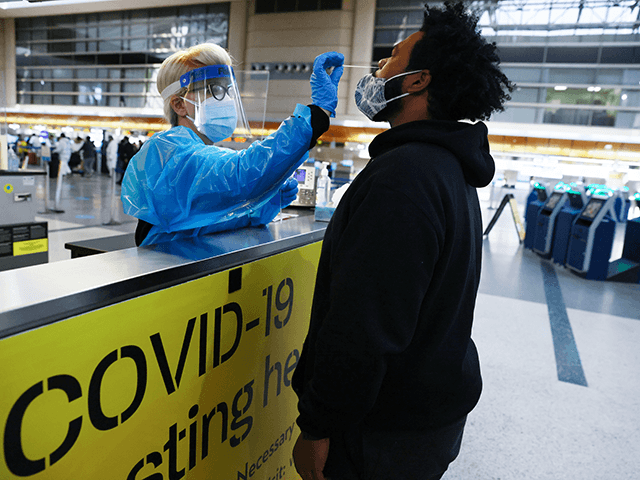The U.S. Centers for Disease Control and Prevention (CDC) is expanding surveillance for infectious diseases at four major airports to track pathogens, including coronavirus and the flu.
The CDC’s Travelers’ Health Branch introduced its Traveler-based Genomic Surveillance program (TGS) in 2021 during the coronavirus outbreak to detect new variants of the disease and other infectious pathogens by collecting samples of nasal swabs and wastewater from arriving international travelers. The program is currently operating at six U.S. airports: Boston Logan International; San Francisco International; Newark Liberty International; Seattle-Tacoma International; Washington, DC’s Dulles International; and New York City’s John F. Kennedy International.
The expansion will include testing at the Boston, San Francisco, Dulles, and JFK airports for “more than 30 bacteria, antimicrobial resistance targets and viruses including influenza A and B, and respiratory syncytial virus, known as RSV,” reports CNN.
“We have known that travelers are a very important population to consider for tracking new and emerging infections,” Dr. Cindy Friedman, leader of TGS and chief of the agency’s Travelers’ Health Branch, told the outlet.
The program involves passengers arriving from out of the country and volunteering for a sample to be taken and recorded anonymously.
“We started this as a concept. Could we get travelers to volunteer at the airport to give us a sample voluntarily when they came in from countries all over the globe?” Friedman recalled the initial thought process behind the project. “And could we get enough samples to then test and do genomic sequencing and know very quickly what was coming into our country?”
The CDC boasts that the program could detect numerous coronavirus Omicron variants “up to 6 weeks before they were reported globally.”
TGS has tested over 370,000 travelers through nasal swab sampling as of October “from over 135 countries from all World Health Organization regions.”
The program also began the collection of wastewater in August 2022, in which CDC officials gathered wastewater from planes using a “custom-made collection device,” CNN reports.
Samples from the planes were then shipped to a laboratory for testing. If found positive for a specific pathogen, they would undergo whole genome sequencing to determine variants.
“One sample from an aircraft coming from a geographic destination afar can give us information potentially about 200 to 300 people that were on that plane,” said Friedman.
The program is a collaboration between the CDC and a Boston-based private biotech company known as Ginkgo Bioworks, which is working on building upon a “large-scale, comprehensive COVID-19 monitoring platform to create a sustainable global biosecurity infrastructure to help manage biological risks anywhere people come together.”
Matthew McKnight, the general manager of biosecurity at the company, says that surveillance programs like TGS are helping to prevent another pandemic from happening.
“The dream is that you’re running similar programs across the world in many, many places, so you get much earlier detection than if somebody shows up at a hospital of something emerging,” McKnight told CNN.
“The idea would be, how do you prevent a pandemic? You catch something really early, which allows you to put it into a vaccine manufacturing process much faster. Today we don’t have as much of that early warning as we want. And these are the first stages of it,” he said.

COMMENTS
Please let us know if you're having issues with commenting.